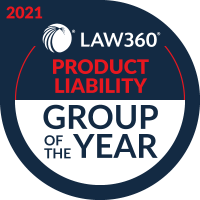The California Supreme Court will soon issue a decision that could significantly alter tort liability under California law.
The Southern California Gas Leak Cases present the court with the opportunity to clarify whether a plaintiff who suffered purely economic harm—in other words, no personal injury or property damage—can sue for negligence without a transactional or other special relationship with the defendant.
Background: The Porter Ranch Gas Leak
In October 2015, the Southern California Gas Company (SoCalGas) discovered a natural gas leak at its Porter Ranch facility in Los Angeles. The leak raised serious concerns when nearby residents began experiencing nausea, nosebleeds, headaches, and other health problems. Some 15,000 people were temporarily relocated, disrupting the local economy.
A group of local businesses filed a proposed class action against SoCalGas, alleging they lost business when Porter Ranch residents relocated because of the leak. The plaintiffs didn’t claim to have sustained any physical injury or property damage.
The General Duty of Care and the Economic Loss Rule
For well over 100 years, California Civil Code section 1714 has imposed a duty on every person to use ordinary care to refrain from acting in a way that foreseeably injures others.
In addition, California has long restricted the ability of contracting parties to recover purely economic losses under tort law. The logic behind this so-called “economic loss rule” is that when parties enter into a contract, they are able to negotiate and agree upon their remedy for a breach. If the contract provides a remedy for purely economic losses, so be it. And if it doesn’t, the parties to the contract should live with what they bargained for. Parties’ contracts, then, dictate whether they can recover purely economic losses arising out of their relationship.
The economic loss rule avoids blurring the line between contractual and tort remedies. It prevents tort law from swallowing up the provisions of a binding agreement. Yet this rule is not absolute—there are limited exceptions that may apply, as when there is a special relationship between the parties (e.g., a notary public’s negligence deprives the plaintiff of the decedent’s estate). Determining whether the parties have a special relationship may entail considering, among other things, whether there was a transaction intended to affect the plaintiff, or the foreseeability of the alleged harm at issue.
SoCalGas Invokes the Economic Loss Rule
SoCalGas moved to dismiss based on the economic loss rule, arguing that the plaintiffs hadn’t alleged a transaction intended to affect them and therefore couldn’t establish a special relationship between the parties sufficient to give rise to an exception to the rule. The plaintiffs argued that the economic loss rule didn’t apply because their negligence claims arose out of SoCalGas’s breach of the general duty of care—not a contract. The trial court concluded that the economic loss rule didn’t apply because the harm was foreseeable and closely connected to SoCalGas’s conduct, the sheer number of local businesses prevented SoCalGas from entering into transactions with them, and the plaintiffs’ injuries were not part of their ordinary business risks.
SoCalGas then successfully petitioned the Court of Appeal for a writ of mandate directing the trial court to dismiss the claims with prejudice. The Court of Appeal, concerned about potentially limitless liability, held that for purely economic losses to be recovered, a transaction intended to affect the plaintiff is a prerequisite to finding the special relationship required to establish an exception to the economic loss rule. And because there was no transaction intended to affect the Porter Ranch plaintiffs, the economic loss rule barred their claims.
Proceedings in the California Supreme Court
In February 2018, the California Supreme Court granted review to consider: “Can a plaintiff who is harmed by a manmade environmental disaster state a claim for negligence against the gas company that allegedly caused the disaster if the damages sustained are purely economic?”
According to the plaintiffs, the economic loss rule doesn’t apply at all because their claims don’t arise from a contract. They argued that the Court of Appeal erred by not starting with the general rule that all persons owe each other a duty of care, and by failing to apply California law to determine whether an exception to the economic loss rule applies in light of such factors as the foreseeability of harm, the connection between the defendant’s conduct and the plaintiff’s injury, the moral blame associated with defendant’s conduct, the burden on defendant and the consequences to the community by imposing a duty, and public policy considerations. The plaintiffs maintained that applying these factors—drawn from a 1968 California Supreme Court case, Rowland v. Christian—sufficiently guards against limitless liability.
SoCalGas countered that the economic loss rule defeats the claims because it is not limited to situations where the parties have a contractual relationship. Neither Civil Code section 1714 nor Rowland, SoCalGas argued, imposes a duty to avoid causing purely economic loss to strangers. Stressing the risk of potentially limitless liability, SoCalGas asked the California Supreme Court to rule that no such duty ever arises. Further noting that it is already heavily regulated as a utility and faces many other lawsuits by those claiming to have suffered personal injury or property damage, SoCalGas argued that reinstating the plaintiffs’ claims would not deter businesses from acting negligently.
Oral Arguments in the California Supreme Court
During the March argument, the Justices appeared skeptical that under no circumstances can a duty to avoid causing purely economic losses to strangers arise. At the same time, the Justices debated where to draw the line on imposing liability in such cases.
The court’s newest member, Justice Groban, asked whether a general rule that there is no duty to avoid causing economic injuries to strangers would be too arbitrary, pointing out that two adjacent business could have different recoveries simply because one happened to sustain some damage to its plants. Justice Cuéllar called the rule SoCalGas proposed “harsh” but also questioned whether the plaintiffs’ position would lead to arbitrary results. Justice Liu focused on the line-drawing problem and providing guidance to litigants and the lower courts.
The Chief Justice wondered if this was precisely the type of case that warranted an exception to the economic loss rule, noting the significant public interest in deterring businesses from negligently causing disasters. She also remarked that it was “cold comfort” to those affected by the gas leak to say they could rely on regulators to prevent something like it from happening to them again.
In the end, although the parties’ positions would significantly alter California tort law, the Justices appear more inclined to issue a narrower ruling or one limited to the facts of the case.
Our Commitment to Excellence
Girard Sharp LLP represents consumers, investors, and institutions in class actions and other complex litigation nationwide. Our public protection attorneys have obtained multimillion-dollar recoveries for victims of unfair and deceptive practices in antitrust, financial fraud, and consumer protection matters against some of the country’s largest corporations, including Raymond James, John Hancock, Sears, Yahoo, and JPMorganChase. Girard Sharp LLP has earned top tier rankings from U.S. News and World Report for Securities and Class Action Litigation and was selected as a 2018 Elite Trial Lawyers finalist by the National Law Journal.





